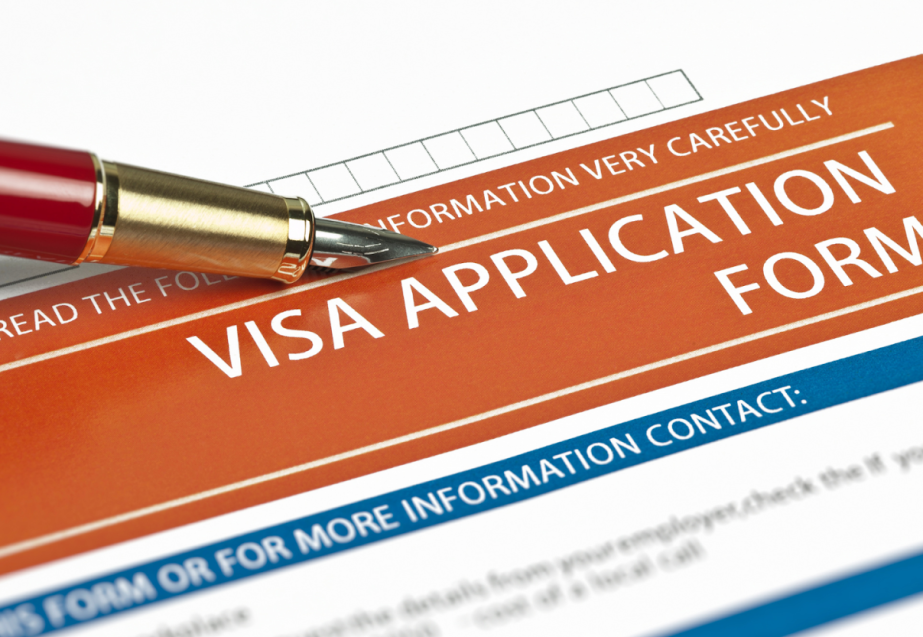
U Visas often hover in the background of immigration law discussions, but they hold immense importance. They serve as lifelines for victims of serious crimes, offering legal status to those who help bring perpetrators to justice.
This visa category was created with a two-fold purpose. First, to enhance law enforcement’s ability to investigate and then to prosecute certain types of crime while protecting victims. The U Visa program is indeed an intersection between criminal law and immigration policy.
This pathway can offer significant benefits like lawful permanent residence and protection against removal. However, navigating the application process is no easy task. Understanding its complexities – from eligibility criteria to annual caps – can be key for potential applicants or advocates working within this field.
Exploring these topics does more than just illuminate the intricacies of U Visa applications. Gaining insight into the nuances of U Visa applications can provide us with a better comprehension. One can learn how our immigration system functions as well as where improvements are necessary.
Understanding The U Visa
The U visa, a unique tool within the landscape of immigration law, as per Pro Se Pro’s experts, was created to protect victims and help law enforcement. This nonimmigrant status is designated for victims of certain crimes who have been helpful in a crime investigation or prosecution.
Origin And Purpose Of The U Visa
The Victims of Trafficking and Violence Protection Act (VTVPA), passed by Congress in 2000, brought into existence what we now know as the U visa. The legislation’s purpose wasn’t simply punitive; it also aimed to fortify partnerships between immigrants and law enforcement agencies.
In its conception, lawmakers recognized that immigrant communities often hesitate to report crimes due to fear about their immigration status. By offering legal protection via a potential path towards lawful permanent residence – something unprecedented at the time – they hoped more individuals would come forward without fearing deportation.
Eligibility Criteria For The U Visa
To be eligible for U visa application approval, one must meet several criteria set forth by United States Citizenship and Immigration Services (USCIS). These are not mere formalities but essential conditions applicants must satisfy before moving forward with their cases:
- A person must have experienced substantial mental or physical abuse as a consequence of having been a critical victim of criminal activity.
- The individual possesses information concerning such criminal activity.
- The individual has been, is being, or could be of assistance concerning the criminal activity investigation or prosecution.
- The crime violated U.S. law or occurred in the United States (including Indian countries and military installations) or its territories and possessions.
Understanding these requirements is crucial, as they form the foundation for a successful U visa application, guiding individuals through their legal journey towards safety and stability within US borders.
The Role Of Law Enforcement In U Visa Applications
One cannot overlook the critical role that law enforcement agencies play when it comes to U visa applications. These bodies not only serve as first responders but also aid significantly in crime investigations, and by extension, they become an integral part of a victim’s journey toward obtaining a U visa.
Certifying Victim’s Helpfulness
In this context, one of the primary duties of these agencies is to certify the helpfulness of victims. This means affirming that a victim has been cooperative during the investigation or prosecution phases of criminal activity. As outlined by DHS guidelines, such certification isn’t just cursory paperwork; rather, it stands as a testament to how instrumental victims have been in proceedings.
This procedure aims to ensure both justice is served against perpetrators and support is given to victims. But let’s delve deeper into what exactly entails being ‘helpful’.
‘Helpfulness’ here refers primarily to willingness – willingness on behalf of victimized individuals to provide useful information about criminal activities perpetrated against them. Such assistance might include giving statements at police stations, identifying culprits from line-ups or even testifying at court trials.
A key element here, though, is ongoing cooperation, meaning if further insights are needed down the road (say during trial stages), certified victims should be ready with their continued assistance.
Challenges Along The Way
Naturally, like all processes, there are challenges along this path too, sometimes due to mistrust between immigrant communities and law enforcement authorities or language barriers making effective communication difficult. Overcoming these obstacles often necessitates collaborative efforts between multiple parties, including legal professionals, immigrant advocacy groups, and law enforcement agencies themselves.
Nonetheless, the role of law enforcement in U visa applications is pivotal. It’s their involvement that often becomes a turning point for victims – transforming them from mere bystanders to key contributors in their journey toward justice and ultimately healing.
Benefits And Protections Offered By The U Visa
The U Visa program offers significant benefits and protections for victims of certain crimes. Let’s examine these advantages, focusing on two key areas: providing a pathway to lawful permanent residence and protection against removal with work authorization.
Pathway To Lawful Permanent Residence
An important benefit that comes with obtaining a U visa is the possibility it provides towards achieving lawful permanent residence status (green card). This means that after holding your U visa for about four years, you can apply to become a lawful permanent resident.
A noteworthy statistic in this regard is that 5 out of every 8 successful applicants eventually secure their green cards. It underscores how effective this pathway has been over time, offering victims not just temporary respite but also an opportunity for long-term stability.
Protection Against Removal And Work Authorization
The protective nature of the U visa extends beyond simply legal residency; it provides vital security measures too. One such safeguard includes immunity from deportation during the validity period of your approved application.
This protection doesn’t mean all deportations are off the table forever though—it merely grants some breathing room while allowing recipients more control over their future immigration plans. Additionally, as part of its suite of benefits, the issuance allows holders permission to work legally within US borders.
These tangible benefits form only one aspect—albeit crucial—of why so many victims opt for the U visa program. The combined benefits make it an appealing option, and with its proven track record of aiding immigrant individuals, it continues to be a powerful tool within broader immigration law.
The Impact Of The U Visa Program On Crime Prosecution And Community Safety
Let’s turn our focus to the pivotal role that the U Visa program plays in crime prosecution and community safety. The presence of this program has shown a significant influence, shaping not just legal landscapes but also societal dynamics.
The Interplay Between U Visas And Crime Prosecution
One key aspect to consider is how granting U visas can facilitate more effective crime prosecution. Victims who receive such protection are often more willing to cooperate with law enforcement, contributing crucial information for investigations or even testifying against perpetrators.
This dynamic creates a ripple effect. As criminals face justice thanks to victims’ testimonies, it serves as a deterrent for potential offenders while simultaneously reassuring communities about their safety.[1]
A Boost For Community Safety
U Visas don’t just help prosecute crimes—they also play an integral part in enhancing overall community safety. By providing vulnerable individuals with security from deportation and access to work authorization, they contribute positively towards stability within immigrant communities.[2]
Beyond immediate relief from fear of deportation or exploitation due to unauthorized employment status, there’s another layer here worth noting: With increased feelings of security comes greater trust in local law enforcement—a critical component for maintaining public order.[3]
Statistical Evidence: A Closer Look
The numbers also paint a clear picture. According to data, areas with high U Visa application rates have shown improvements in crime prosecution and community safety.[4]
Despite the improvements in crime prosecution and community safety, there are still challenges to be addressed. Processing delays due to annual caps on the number of visas issued can hamper these benefits.
Challenges Faced by U Visa Applicants
Navigating the U Visa application process is akin to traversing a labyrinth, fraught with complexities and challenges. This journey demands both courage and tenacity from applicants, who must surmount multiple hurdles.
The Hurdle Of Eligibility Criteria
The first hurdle that prospective applicants encounter lies in meeting stringent eligibility criteria. To qualify for a U visa, victims must prove their helpfulness in investigating or prosecuting crimes—a task often complicated due to language barriers, cultural differences, fear of reprisal, or distrust of law enforcement agencies.
Fulfilling this requirement can feel like assembling an intricate jigsaw puzzle under duress; missing even one piece can derail the entire endeavor. Hence, applicants must be meticulous when compiling supporting documents that corroborate their claims. USCIS guidance on documentation requirements serves as an invaluable resource during this stage.
Limited Law Enforcement Resources
An additional challenge springs from limited resources within law enforcement agencies tasked with certifying victim assistance—a crucial step in obtaining a U visa. The certification process might be slow-moving due to understaffed departments leading to significant delays in processing applications—an agonizing wait for those seeking protection through the program.
Capping Challenges: Annual Limit And Backlog Woes
Akin to reaching the summit after an arduous climb only to find another mountain looming ahead, the annual cap on granted visas poses yet another challenge for hopeful candidates. With 10,000 available slots annually, according to DHS statistics, many qualified individuals remain on a waitlist due to this restriction.
Compounding the issue is an extensive backlog, causing prolonged waiting periods—often several years. During this time, applicants remain in limbo, living under constant fear of deportation and being separated from their families abroad as they are ineligible for derivative U visas until principal U visa approval. American Immigration Council research further illuminates these difficulties.
Navigating Through Uncharted Waters: Legal Complexity And Financial Constraints
Another significant hurdle is the maze-like complexity of immigration law. It’s a challenging path to navigate and often makes people feel lost and overwhelmed.
The Annual Cap On U Visas And Its Implications
Each year, a maximum is established for the number of U visas that can be granted. This cap has significant implications for both processing times and potential solutions to this issue.
The U Visa Annual Cap And Backlog
A critical aspect to understand about the U visa program is its annual cap. By law, only 10,000 principal visas are granted each fiscal year – a figure not inclusive of derivative family members who may also get protection under this scheme.
This restriction inevitably leads to an extensive backlog as demand surpasses supply every single year. For example, at the end of Fiscal Year 2023, there were over 150,000 pending petitions in line – causing considerable delays, with applications sometimes taking several years before adjudication.
Potential Solutions To The U Visa Cap Issue
Facing such large backlogs demands bold actions and innovative ideas from policymakers if we want more efficiency within our immigration system. One possible solution could involve raising or even eliminating the annual cap on these visas.
Legislative reforms have been proposed aiming at precisely this objective but have yet to meet the complex political landscape surrounding immigration issues in Congress. Nevertheless, changes needn’t solely come from lawmakers; administrative tweaks by USCIS might also help alleviate some pressures.
Suggestions include prioritizing cases involving imminent deportation threats or those from individuals who have already provided significant help to law enforcement. By adjusting internal policies and procedures, USCIS could make strides towards reducing the U visa backlog without requiring legislative action.
Conclusion
U Visa applications are more than just a formality. They’re lifelines for victims, key tools for law enforcement, and significant elements within broader immigration law. You’ve delved into the history of U-Visas and their intended purpose. You now know the eligibility criteria needed to apply.
Appreciate how crucial law enforcement is in this process. Remember that they certify the victim’s helpfulness during investigations or prosecutions. Acknowledge the benefits provided by U Visas: protection against removal, work authorization, and even pathways to green cards.
Ponder its impact on crime prosecution rates and community safety. Yet don’t forget about the challenges faced by applicants or the implications of annual caps – all these add layers to understanding our complex immigration system better.
Read More:





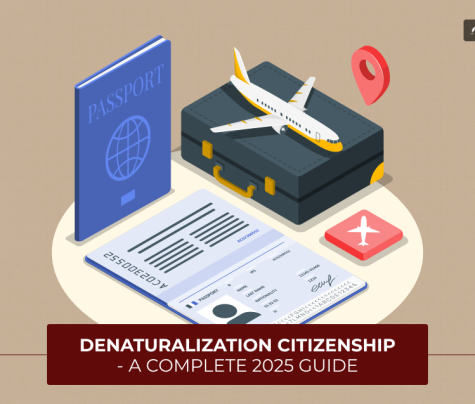
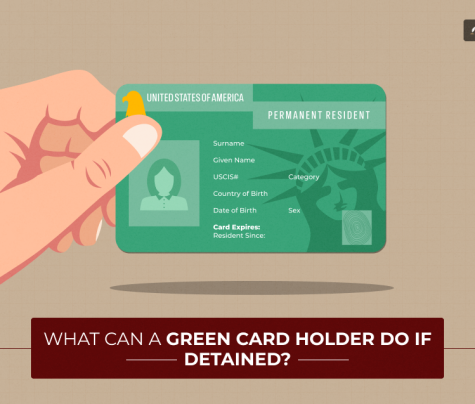
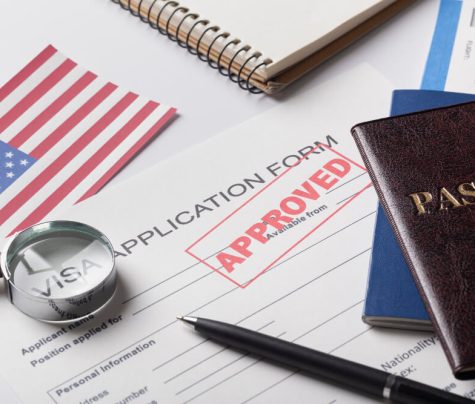
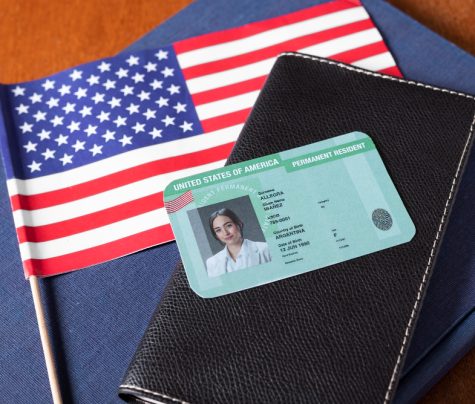


0 Reply
No comments yet.